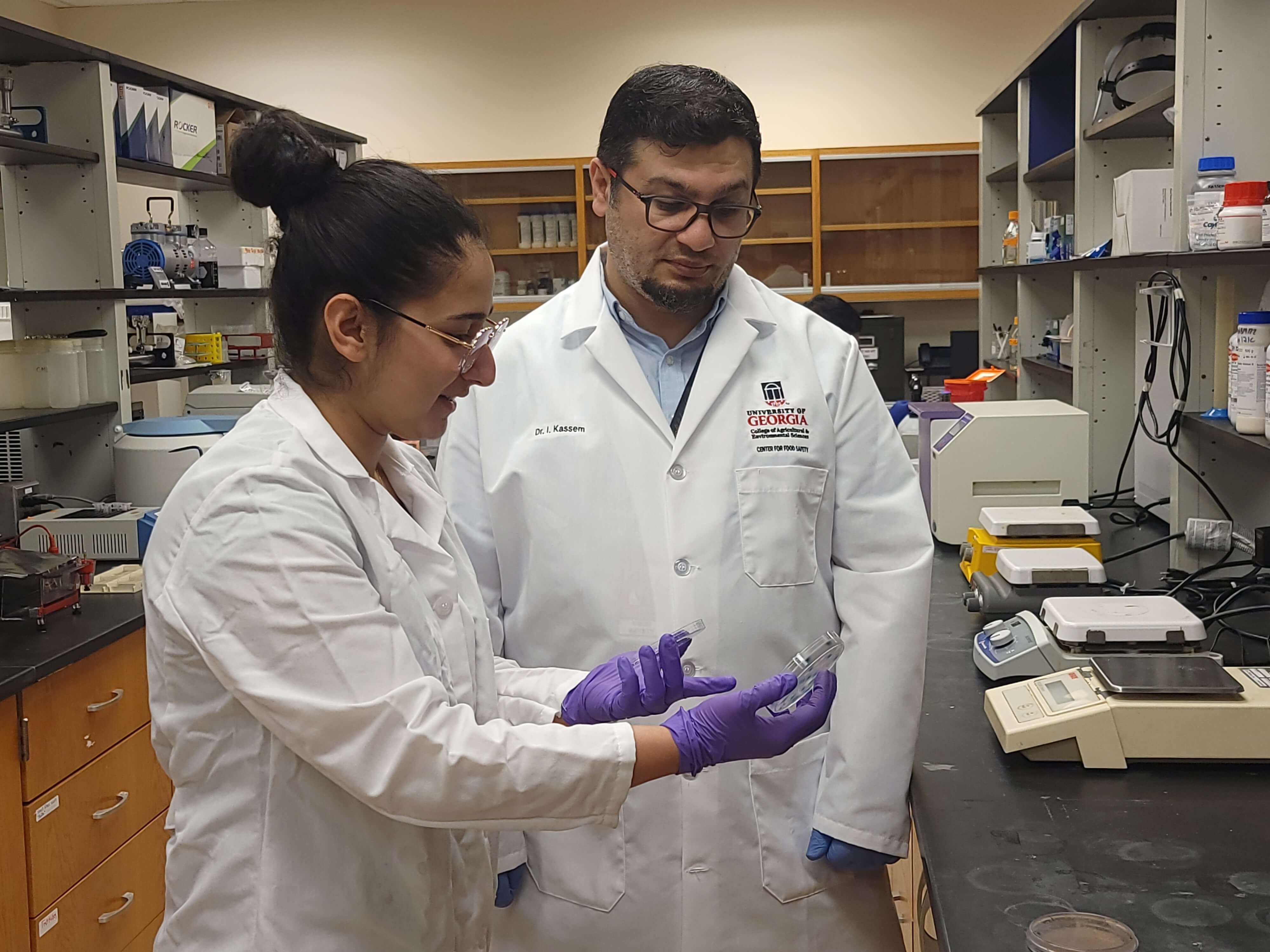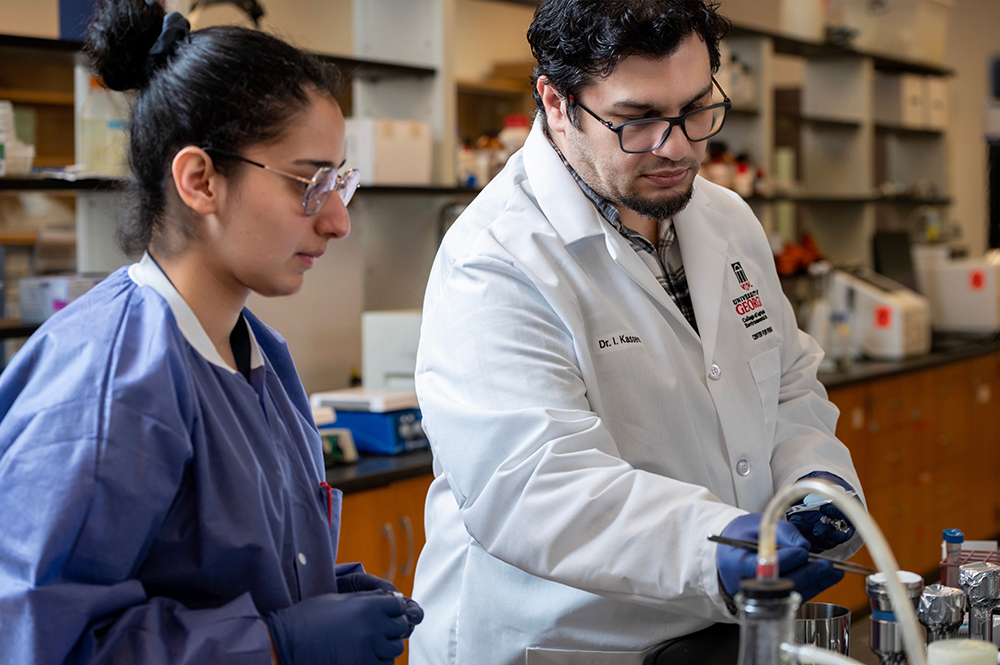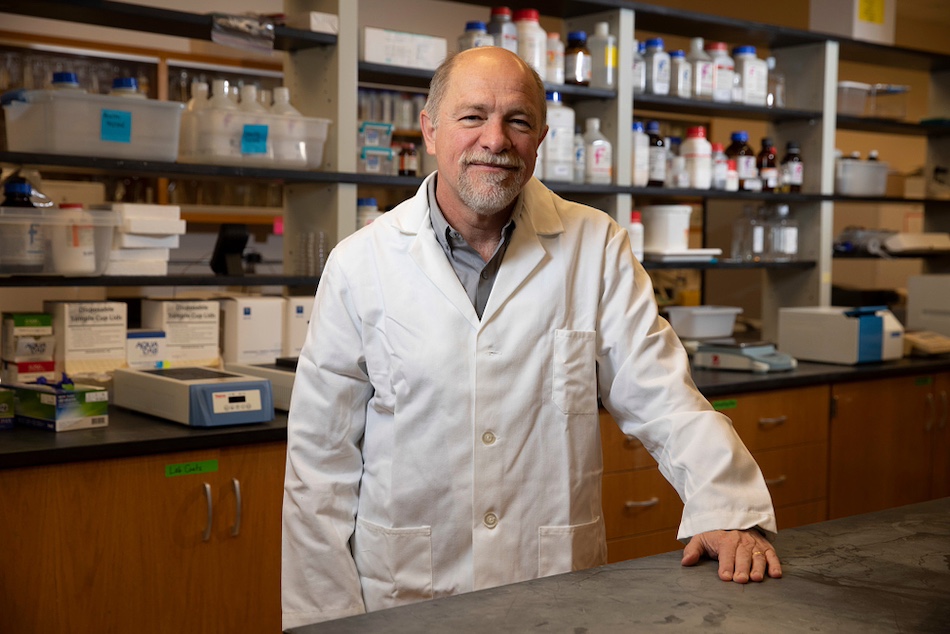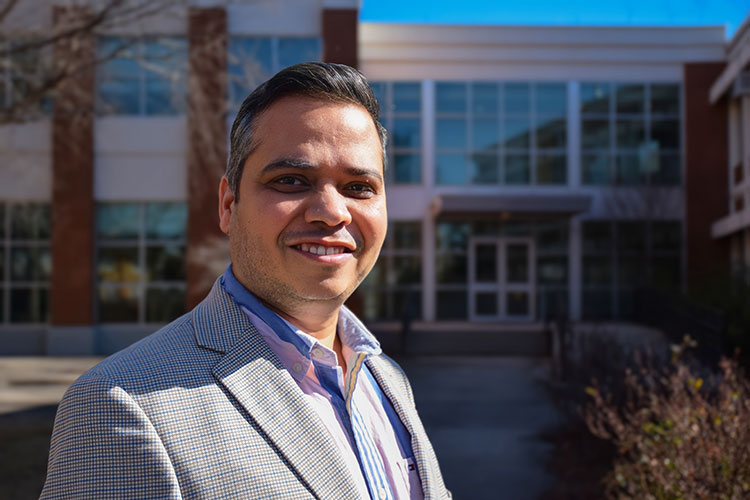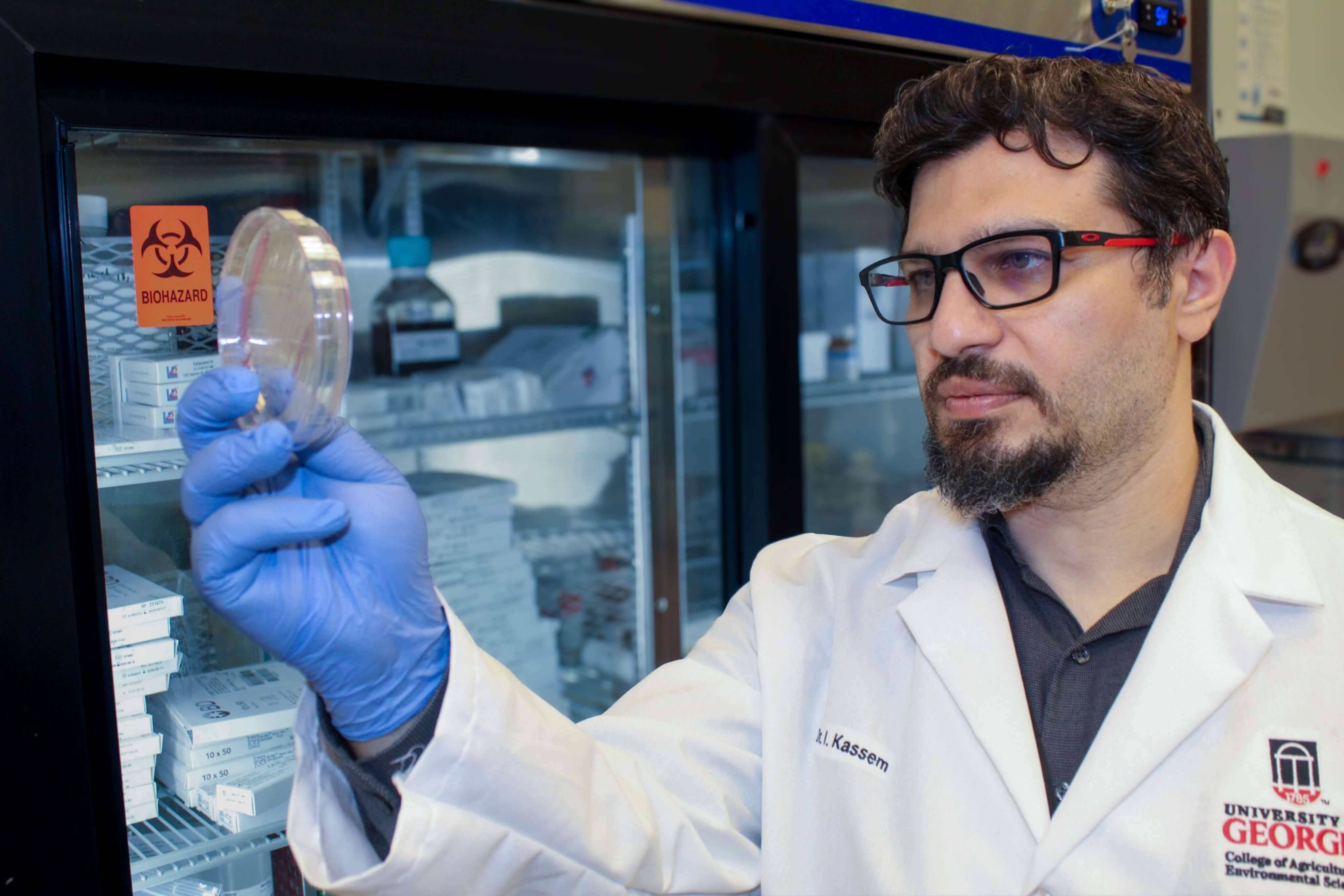 CAES News
CAES News
Issmat Kassem
University of Georgia Center for Food Safety researcher Issmat Kassem has dedicated nearly two decades to studying antimicrobial resistance, identified by the World Health Organization as a top-10 public health threat to humanity. Kassem was recently recognized as a ScholarGPS Highly Ranked Scholar for his research studying antimicrobial resistance in water and food. Hear directly from Kassem in this Q&A about his work to protect public health from this ongoing threat.

